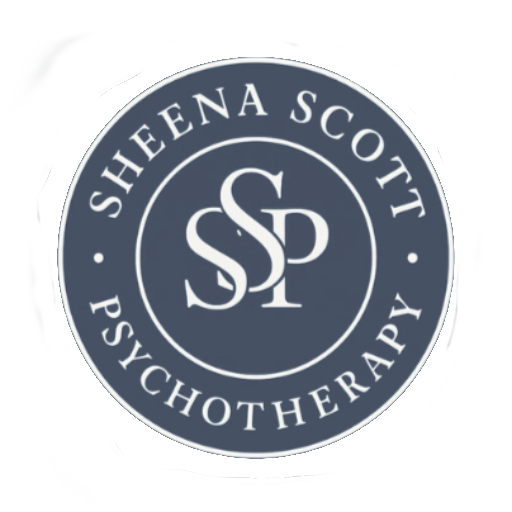Individual Psychotherapy
Sheena Scott Psychotherapy - offering individual online therapy for adults across Ontario—a supportive space to navigate ADHD, anxiety, self-esteem, burnout, perfectionism, and relationship challenges. Think of our sessions as a space where your experiences are met with compassion and your journey is supported with professional expertise. Together, we’ll uncover strategies that align with your unique needs, helping you build resilience, embrace your neurodivergence, and create a more balanced, fulfilling life.
Sessions Details
$170 per session (50-minutes)
Serving all of Ontario virtually
Cliente: Adults 18+

FAQs
-
Psychotherapy is a collaborative process where you work with your therapist to explore thoughts, emotions, and behaviors in order to improve mental health, gain insight, and develop healthier ways of coping with life's challenges.
-
A consultation (virtual) call is free, 15-minute conversation designed to help you and a prospective therapist get to know each other. It’s an opportunity to briefly discuss what’s bringing you to therapy and explore whether the therapist’s approach aligns with your needs. During this call, the therapist may ask a few questions to better understand your situation and will also explain how they work. Research consistently highlights the importance of a strong therapeutic connection, as it plays a key role in building trust, increasing engagement, and supporting progress in treatment.
Ready to take the next step? Schedule your consult call here. -
Your first session is a chance to share your story in a supportive, confidential environment. It also gives you the opportunity to get a feel for your therapist and how they work. This initial meeting focuses on gathering information and building understanding, laying the groundwork for setting meaningful therapeutic goals together.
-
Each individual therapy session is 50-minutes. This is often referred to as a “therapeutic hour” — the remaining 10 minutes are typically used for note-taking, sending resources or follow-up materials, and handling administrative tasks.
-
This is a common — and understandable — question, though not always easy to answer. Every person comes to therapy with their own unique challenges, background, and goals, which means the ideal frequency can vary. That said, research shows that consistency—especially early on—tends to support better outcomes. For this reason, weekly sessions are generally recommended for at least the first 4–6 weeks. This helps build momentum and gives the therapeutic relationship a solid foundation. Ultimately, though, session frequency is a collaborative decision between you and your therapist, based on your needs and circumstances.
-
I work primarily with adults who have recently been diagnosed with ADHD or suspect they might have it. Common concerns I help with include overwhelm, anxiety, procrastination, time management, difficulty focusing, and low self-esteem. My goal is to help you better understand how your brain works, shift away from self-criticism, and build on your natural strengths with greater compassion and clarity.
-
ADHD-adapted therapy is a therapeutic approach that supports and validates the lived experiences of individuals with ADHD. Instead of focusing on “fixing” or “curing” ADHD (or any type of neurodivergence), this model recognizes ADHD as a neurodevelopmental difference rather than a flaw. The goal is to help people with ADHD/neurodivergence thrive by embracing their unique brain wiring and working with it — not against it.
-
Psychotherapy services are often covered by employer benefit insurance plans. You can verify this by confirming whether your insurance provider covers services by Registered Psychotherapist's (RP). Receipts are provided at the end of each session, which clients can then submit to their provider for reimbursement should they have coverage.
-
I take a relational approach to therapy, which means I view the connection between therapist and client as central to the healing process. Building a strong, trusting relationship allows us to work together openly and collaboratively. Research consistently shows that the quality of the therapeutic relationship is one of the most important factors in creating positive outcomes—so finding the right fit truly matters. My goal is for clients to feel seen, heard, and understood. I aim to show up as someone who is relatable, honest, authentic, and skilled—because that’s the foundation for meaningful work together.
Contact
To learn more about how we can work together, kindly fill out the form below and I'll be in touch.

